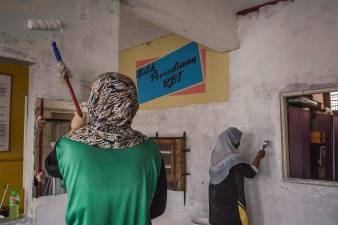PETALING JAYA: Malaysia’s education ministry has emerged as the agency with the most critically overdue development projects under the 12th Malaysia Plan, with 46 initiatives falling significantly behind schedule.
The 2025 Auditor-General’s Report Series 3, presented to Parliament today, disclosed that a total of 157 projects spanning 18 ministries have experienced critical delays as of December 31, 2024.
Following the education ministry, the rural and regional development ministry recorded 34 severely delayed projects. The energy transition and water transformation ministry came third with 12 overdue initiatives, while the housing and local government ministry reported 11 critical delays.
Among the most concerning findings, four projects showed physical completion rates lagging by over 20%, despite receiving between two and 10 extensions of time (EOT)—some stretching beyond 700 days.
The most severely delayed project involves constructing a new six-classroom school, hostel and teachers’ quarters at SK Metalun in Sarawak, under the education ministry’s purview. This initiative has received 10 extensions totaling 785 days.
According to the public works department (JKR), utility complications and demolition requirements contributed to the postponements. The department anticipates handover before the January 2026 school term commences.
The RM100 million Armed Forces Joint Task 2 family housing development at Kem Kukusan, Sabah, experienced work stoppages due to the contractor’s financial difficulties and management failures.
In its submission to the national audit department, the defence ministry revealed that JKR terminated the contractor’s engagement on May 23, 2025. Completing the project now requires an additional RM4.5 million allocation, with a replacement contractor anticipated to be appointed in December.
Another defence project—the RM63.25 million Labuan Air Base family housing development—received four extensions totaling 467 days. Contributing factors included inadequate worker skills, adverse weather conditions, logistical challenges, and delays in imported materials.
JKR issued a second warning to the contractor for missing progress milestones and intervened directly on June 13, 2025. The project will now continue under the 13th Malaysia Plan framework.
The RM20.4 million refurbishment of Galeria Perdana in Langkawi, managed by the national unity ministry, faced contractor-related setbacks resulting in four extensions totaling 192 days.
On August 15, the ministry submitted a notice of change to the economy ministry requesting an additional RM40.2 million—nearly tripling the original budget to RM60.6 million.
The implementation coordination unit within the Prime Minister’s Department provided a comprehensive status update as of June 30:
Implementation stage: 4,528 projects (48.4% of 8,355 total)
Pre-implementation: 3,136 projects (33.5%)
Post-implementation: 1,526 projects (16.3%)
On hold or cancelled: 165 projects (1.8%)
By comparison, end-2024 figures showed 3,829 projects (43.7%) under implementation, 2,400 (27.4%) at pre-implementation, 2,355 (26.9%) at post-implementation, and 171 (2%) cancelled or under review.
Between 2021 and 2024, development expenditure reached RM315.93 billion—surpassing the approved allocation of RM307.91 billion. This represents 76.1% of the RM415 billion ceiling established under the 12MP Mid-Term Review.
The auditor-general has issued clear directives to all ministries and departments: take immediate corrective action to resolve delayed projects and ensure all 12MP initiatives reach completion by the end of 2025.
The findings underscore persistent challenges in project management, contractor performance, and timeline adherence across Malaysia’s government development portfolio, raising questions about planning adequacy and oversight mechanisms.
